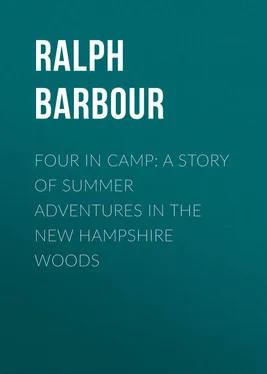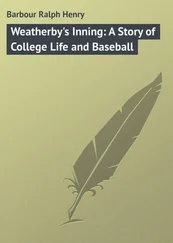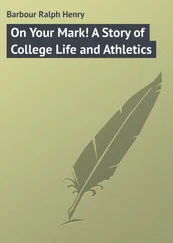Ralph Barbour - Four in Camp - A Story of Summer Adventures in the New Hampshire Woods
Здесь есть возможность читать онлайн «Ralph Barbour - Four in Camp - A Story of Summer Adventures in the New Hampshire Woods» — ознакомительный отрывок электронной книги совершенно бесплатно, а после прочтения отрывка купить полную версию. В некоторых случаях можно слушать аудио, скачать через торрент в формате fb2 и присутствует краткое содержание. ISBN: , Жанр: foreign_prose, foreign_children, на английском языке. Описание произведения, (предисловие) а так же отзывы посетителей доступны на портале библиотеки ЛибКат.
- Название:Four in Camp: A Story of Summer Adventures in the New Hampshire Woods
- Автор:
- Жанр:
- Год:неизвестен
- ISBN:http://www.gutenberg.org/ebooks/50590
- Рейтинг книги:5 / 5. Голосов: 1
-
Избранное:Добавить в избранное
- Отзывы:
-
Ваша оценка:
- 100
- 1
- 2
- 3
- 4
- 5
Four in Camp: A Story of Summer Adventures in the New Hampshire Woods: краткое содержание, описание и аннотация
Предлагаем к чтению аннотацию, описание, краткое содержание или предисловие (зависит от того, что написал сам автор книги «Four in Camp: A Story of Summer Adventures in the New Hampshire Woods»). Если вы не нашли необходимую информацию о книге — напишите в комментариях, мы постараемся отыскать её.
Four in Camp: A Story of Summer Adventures in the New Hampshire Woods — читать онлайн ознакомительный отрывок
Ниже представлен текст книги, разбитый по страницам. Система сохранения места последней прочитанной страницы, позволяет с удобством читать онлайн бесплатно книгу «Four in Camp: A Story of Summer Adventures in the New Hampshire Woods», без необходимости каждый раз заново искать на чём Вы остановились. Поставьте закладку, и сможете в любой момент перейти на страницу, на которой закончили чтение.
Интервал:
Закладка:
“That puts us even again, doesn’t it?” he said to Nelson.
Nelson nodded.
He kept a watch on Dan the rest of the time, but the latter made no attempt to trouble him again. He profited to some extent by Dr. Smith’s instructions, and when the cry of “All out!” came he believed that to-morrow he would have the courage to try a dive from the “crow’s-nest,” as the fellows called the little platform above the pier. He walked up the hill with Bob and Tom.
“I don’t see why that silly idiot of a Speede wants to be forever trying his fool jokes on me,” he said aggrievedly.
“That’s just his way,” answered Tom soothingly.
“Well, it’s a mighty tiresome way,” said Nelson, in disgust.
“He has an overdeveloped sense of humor,” said Bob Hethington. “It’s a sort of disease with him, I guess.”
“Well, I wish he’d forget it,” Nelson grumbled. “I’m afraid to sit down on a chair now for fear there’ll be a pin in it.”
“Oh, he gets tired after a while,” said Bob. “He was that way with me for a day after camp began.”
“What did you do?” asked Nelson curiously.
Bob smiled; so did Tom.
“I gave him some of his own medicine. I filled his bunk with pine-needles – they stick nicely to woolen blankets, you know – tied knots in every stitch of clothing he had, and put all his shoes in a pail of water. He’s never bothered me since.”
“Did he get mad?”
“Mad? No, you can’t get the idiot mad. Carter says he laughed himself to sleep that night – Dan, I mean.”
“I wonder if all the St. Eustace fellows are like him,” Nelson mused. “If they are, life there must be mighty interesting. Perhaps they have a course of practical joking there.”
Dinner was at twelve-thirty, and it was a very hungry set of fellows that dropped themselves onto their stools and attacked the soup, roast beef, potatoes, spinach, beets, apple pie, and cheese. Nelson marveled at first at the quantity of milk his neighbors got away with, but after a day or so he ceased to wonder, drinking his own three or four glasses without difficulty. After dessert the history of the preceding day was read by one of the councilors, while the historian, a very small youth known as “Babe,” grinned sheepishly and proudly as he listened to his composition. Nelson’s hazing was referred to with gusto and summoned laughter, and “Babe” was loudly applauded when the history was finished and the reader had announced “George Fowler.”
At one-thirty the bugle blew for “siesta,” the most trying part of the day’s program. Every boy was required to go to his bunk and lie down for half an hour with closed eyes and relaxed body. By the middle of the summer custom had enabled most of them to accept this enforced idleness with philosophy, and to even sleep through a portion at least of the terrible half hour, but at present it was suffering unmitigated, and many were the pleas offered to escape “siesta.” When Nelson approached his bunk he was confronted by a square of brown wrapping-paper on which in black letters, evidently done with a blacking-brush, was the inscription:
He felt his cheeks reddening as the snickers of the watchers reached him. There was no doubt in his mind as to the perpetrator of the insult, for insult it was in his judgment, and his first impulse was to march down the aisle and have it out with Dan there and then. But he only unpinned the sheet, tossed it on the floor, and laid down on his bunk. Presently, when his cheeks had cooled, he raised his head cautiously and looked around. The dormitory was silent. One or two fellows were surreptitiously reading, a few were resolutely trying to obey orders, and the others were restlessly turning and twisting in an agony of inactivity. Mr. Verder was not present, and the dormitory was in charge of Dr. Smith, whose bunk was at the other end. Nelson quietly reached out and secured the obnoxious placard, laying it clean side up between his bed and Bob’s and holding it in place with a shoe. Then he found a soft pencil, and, lying on the edge of the bunk, started to work. Bob looked on dispassionately. Nelson wondered if he ever really got interested in anything.
After a while the task was completed. Nelson looked warily down the room. Dr. Smith was apparently asleep. Finding two pins, he crept off the bed and secured the sheet of paper to the rafter where it had hung before. Up and down the dormitory heads were raised and eager eyes were watching him. This time the placard hung with the other side toward the room, and the new inscription read:
Nelson scuttled back to bed. Faint whispers reached him. Then:
“Where are you going, Speede?” asked the Doctor’s voice suddenly.
Dan, creeping cautiously up the aisle, paused in his tracks.
“I left something up here, sir.”
“Get it after siesta, then.”
Dan went back to bed. The whispers grew, interspersed with chuckles.
“Cut that out, fellows,” said the Doctor, and silence reigned again. For the next quarter of an hour the score of last autumn’s football game between Hillton and St. Eustace flaunted itself to the world. The fellows, all save one or two who had really fallen asleep, wondered what would happen after siesta. So did Nelson. He hoped that Dan would make trouble, for it seemed to him then that that insult could only be wiped out with blows; and although Dan was somewhat taller and much heavier than Nelson, the latter fancied he could give a fairly good account of himself. And then the bugle blew, fellows bounded onto the floor, and the ensuing racket more than made up for the half hour of quiet. Dan made at once for the placard. Nelson jumped up and stood under it. Dan stopped a few steps away.
“That’s my piece of paper, you know,” he said quietly.
“Get it,” answered Nelson.
“Cut it out, you two,” said Bob.
Nelson flashed a look of annoyance at the peacemaker.
Dan viewed him mildly. “Look here,” he said, “if you’ll take that down and tear it up, we’ll call quits.”
“I don’t know,” said Nelson. “How about Hillton being a bum school?” Dan grinned.
“You take that down,” he said.
“I will when you take back what you wrote on the other side.”
“Don’t you do it, Dan,” advised a snub-nosed chap named Wells.
“You shut up, Wells,” said Bob; and Wells, who wasn’t popular, was hustled out of the way by the others who had gathered.
“Well, ain’t she pretty bum?” asked Dan innocently.
“Not too bum to lick you at football,” answered Nelson hotly.
“Pooh!” said Dan. “Do you know why? Because they wouldn’t let me play.”
That aroused laughter, and Nelson stared at his antagonist in deep disgust. “What an idiot he was,” he said to himself; “he couldn’t be serious even over a quarrel.”
“Well, she did it, anyhow,” he said rather lamely.
“Well, it’s over now, isn’t it?” asked Dan calmly. “So let’s take the score down,” and he moved toward the placard.
“No you don’t!” Nelson exclaimed, moving in front of him; “not until you’ve apologized.”
Dan smiled at him in his irritating manner.
“Don’t you believe I could lick you?” he asked.
“Maybe you can,” said Nelson, “but talking won’t do it.”
“Well, I can; but I’m not going to. There isn’t going to be any row, so you fellows might as well chase yourselves. It was just a joke, Tilford. Hillton’s all right. It’s the best school in the country, barring one. How’ll that do for an apology, my fierce friend?”
Читать дальшеИнтервал:
Закладка:
Похожие книги на «Four in Camp: A Story of Summer Adventures in the New Hampshire Woods»
Представляем Вашему вниманию похожие книги на «Four in Camp: A Story of Summer Adventures in the New Hampshire Woods» списком для выбора. Мы отобрали схожую по названию и смыслу литературу в надежде предоставить читателям больше вариантов отыскать новые, интересные, ещё непрочитанные произведения.
Обсуждение, отзывы о книге «Four in Camp: A Story of Summer Adventures in the New Hampshire Woods» и просто собственные мнения читателей. Оставьте ваши комментарии, напишите, что Вы думаете о произведении, его смысле или главных героях. Укажите что конкретно понравилось, а что нет, и почему Вы так считаете.












